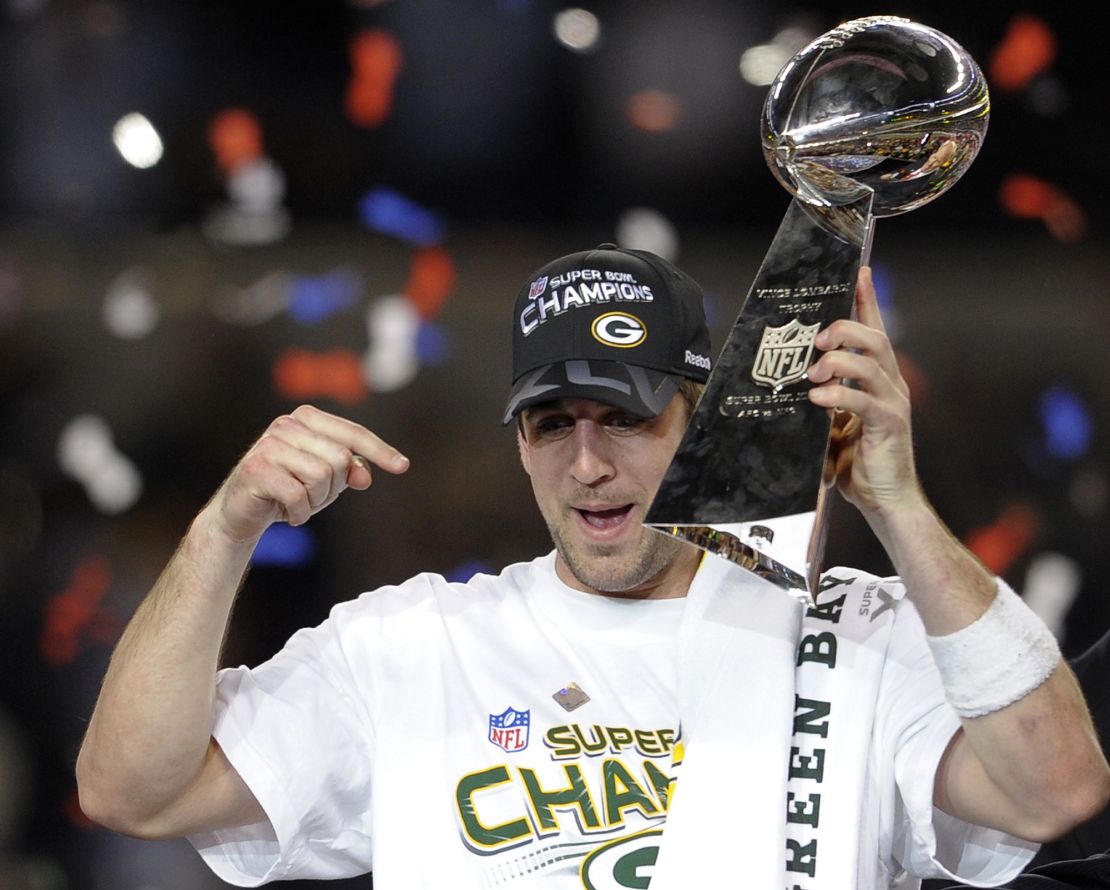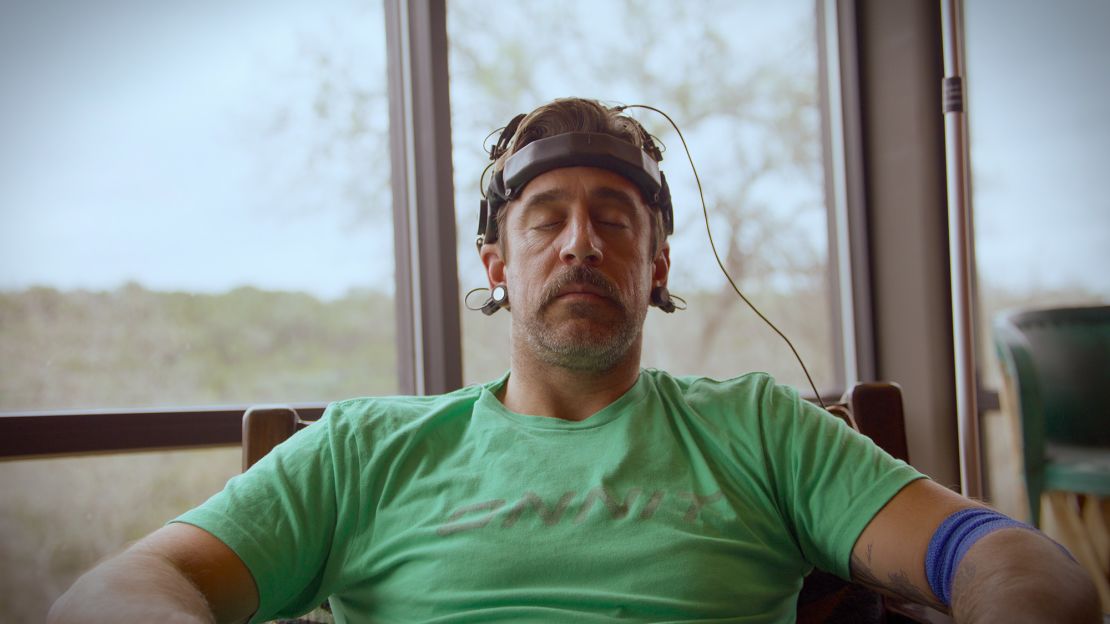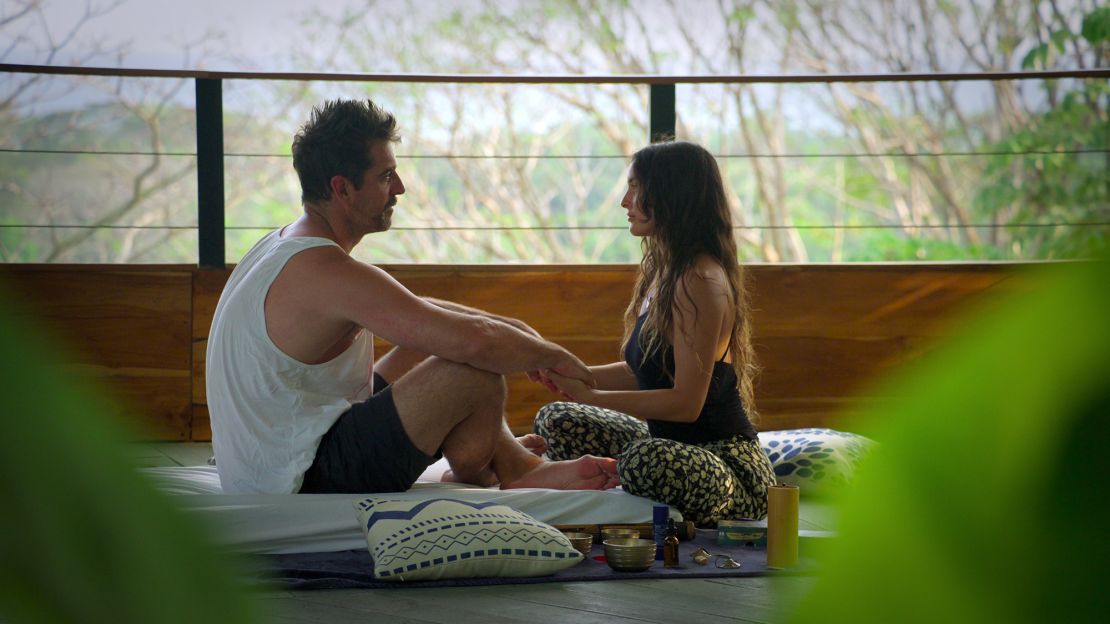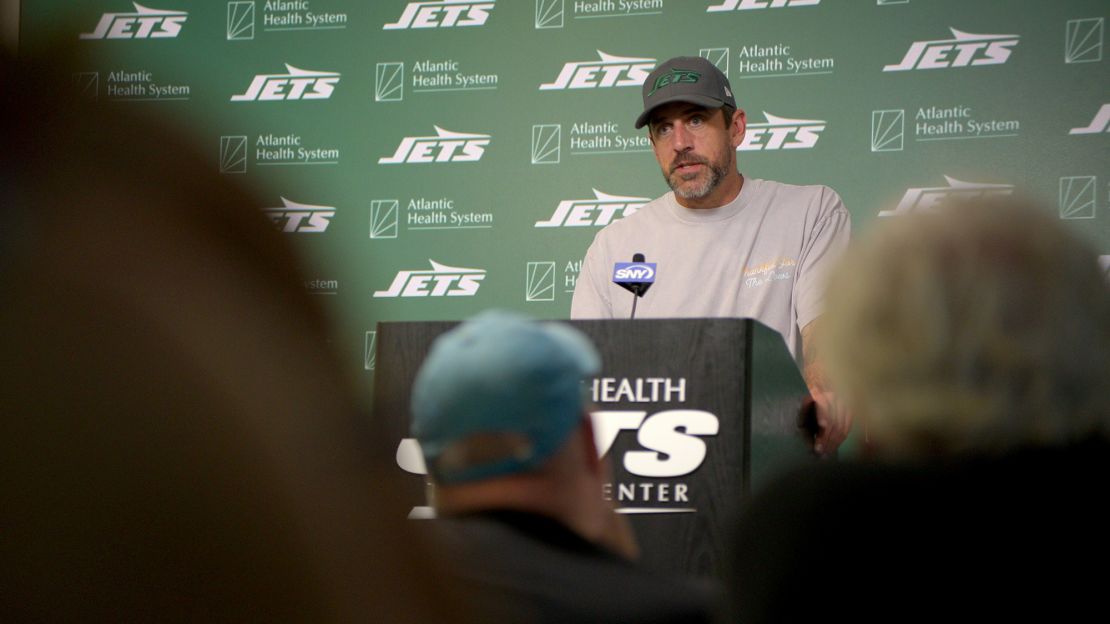CNN
—
Few athletes in the history of the NFL have had more attention than quarterback Aaron Rodgers.
On the field, he’s one of the greatest to ever do it – a four-time MVP with the ability to drag a team to Super Bowl glory. Off the field, he’s not afraid to be different, a trait which has seen him embroiled in multiple controversies.
In his new Netflix documentary titled “Enigma,” Rodgers attempts to explain himself in his own words.
Across three episodes, the audience is taken on a journey, where we see a young boy grow into one of the most talked about athletes on the planet.
Given much of his life has been reported on for years, revelations are few. But there is still plenty to learn and try to understand.
Here are five of the most intriguing topics from his new documentary.
1. Draft day and ‘ego death’
While it was clear that young quarterback Rodgers had an elite throw, his rise to the top wasn’t always smooth; the 2005 NFL Draft was the perfect example of that.
After flourishing at college in California, the Super Bowl XLV champion admits he expected to be picked early in the first round of the draft. After all, the San Francisco 49ers had the first pick and needed a quarterback.
However, reality proved very different.
San Francisco did pick a quarterback, but it wasn’t Rodgers. They instead picked what was deemed the safer option in Alex Smith from Utah.
Rodgers, with a television camera pointing in his face, had to wait, and wait some more, before he was eventually picked 24th, in one of the biggest draft slides in history.
“I was embarrassed, I was pissed, I was going through a kind of ego death,” he says in the documentary.
“The draft process can make you start really feeling yourself, thinking your sh*t doesn’t stink. I really needed that reality check that happened during that process, so I’m definitely thankful for that.”
The Green Bay Packers finally made the jump and, safe to say, it worked out pretty well for both parties.
For any young player with dreams of playing in the NFL, winning the Super Bowl is the highest aspiration. Rodgers was no different.
It was always his ultimate goal, a moment which would be the culmination of all his hard work, making all those sacrifices worth it.
Then, in 2011, those dreams came true. Rodgers, against all odds, led the Packers to victory at Super Bowl XLV.
“The game is kind of a blur. I’ve actually never watched it back on tape, I’ve never seen it,” he says. “I’ve seen it in my mind and there’s a couple of amazing plays that I feel good about.”
Rodgers not only won the Super Bowl, he was also named game MVP – the ultimate dream for any player in the NFL, right?

But while Rodgers says it was a “special” night, he concedes it also forced him to confront some uncomfortable questions about himself.
“Now (that) I’ve accomplished the only thing I’ve wanted to do in my life, now what?” he asks.
“Did I aim at the wrong thing? Did I spend too much time thinking about stuff that ultimately doesn’t give you true happiness?”
While Rodgers was left battling an identity crisis, he was also navigating his new life as a Super Bowl champion – which meant more attention and more scrutiny.
His life was now being played out in front of the entire world and Rodgers says he didn’t do himself “any favors” with several public romantic relationships.
“I definitely hated it at first, like really despised it. I enjoyed my private life, I enjoyed being able to go places,” he says.
“But from Super Bowl MVP, MVP, State Farm commercials, that got a little more difficult.”
No family members participated in the three-part documentary, which probably says all you need to know about Rodgers’ fractured relationships.
He refers to it throughout the episodes and says issues with both friends and family were exacerbated after he became one of the faces of the NFL.
“There were a lot of times, when I became real famous, where I heard from a lot of people, including family members, who were like, ‘Your life is too big, we need you to be smaller, be smaller, don’t talk about your life.’
“It always hurt me because I just feel like, ‘You don’t see me.’ This is not something I’ve desired or wanted, other than playing on Sundays.
“It can definitely change the people around your circle because it can be intoxicating: the fame and notoriety. Definitely, relationships changed after that.”
Delving deeper into the family feud, Rodgers refers to unknown issues dating back to high-school and college that made him feel distant from his parents.
The estrangement only got worse after his younger brother’s appearance on reality TV show, “The Bachelorette.”

In the show, watched by millions of viewers, there was a scene where Rodgers’ brother took a woman back to the house to have dinner with his family.
The family sat down at the table, where it was made clear that the NFL star was absent.
“They go on a bullsh*t show, and leave two empty chairs. They all agree this is a good thing to do, to leave two empty chairs on a stupid dating show that my brother just went on to get famous, his words, not mine,” the current New York Jets QB says.
“A dinner that was during the season, that I was never asked to go to – not that I would have gone.”
The issues only deepened when Rodgers began questioning things from his childhood, notably his religion, but the quarterback concedes he hopes one day for reconciliation in the family.
4. Plant medicine and self-love
It’s impossible to write about this documentary and not talk about ayahuasca – if you didn’t know better, you might think the whole series was used to simply advertise its supposed benefits.
Rodgers says he had done ayahuasca nine times and credits it for giving him a mental edge on the field.
Ayahuasca, a word from the indigenous Quechua language, means “the vine of the spirits.” People in the Amazonian region of Brazil, Peru, Colombia and Ecuador have used it for centuries for therapeutic and spiritual purposes.
The medicinal beverage’s properties come from two plants. Banisteriopsis caapi, a vine that twists its way up to the treetops and across river banks of the Amazon basin, is boiled together with Psychotria viridis, a shrub whose leaves contain the psychoactive molecule DMT.

A camera crew accompanies Rodgers to an ayahuasca retreat in Costa Rica, where he also meets other NFL veterans who say they were inspired by him to explore alternative therapies.
“I’m just searching, curious, inquisitive. Just trying to listen to the universe,” Rodgers says, as he attends the retreat in order to help him deal with his long-term injury – a torn Achilles tendon suffered in just his fourth play as the Jets starter in 2023.
“The reason we do this is because it’s deep healing work, on self, on ego, on past trauma. But you have to go to some deep places in the shadow of your own self.”
From the documentary, he doesn’t seem to care about those who ridicule the process. It’s become a huge part of his life and a way of coping with the intense pressure he faces in his life as an athlete.
Being his own documentary, Rodgers controls the narrative around some of his bigger controversies.
The last episode focuses largely on the Covid-19 years and the media fallout which came after that infamous press conference where Rodgers told reporters he was “immunized.”
What Rodgers really meant was that he had not been vaccinated, choosing instead to explore alternative therapies.
When it came out that Rodgers was unvaccinated, critics said Rodgers had lied.
“There was this whole smear campaign, that I was endangering my teammates and I was going to kill their grandmas because how could I be in a room and nobody know I wasn’t (vaccinated),” he says.

“Everybody in my f**king circle knew I wasn’t vaccinated, everyone in my team knew I wasn’t vaccinated.”
Rodgers’ former Green Bay teammates and head coach stood up for Rodgers in the documentary, which made out that the media was on some sort of witch hunt.
The media storm followed him throughout the season and Rodgers says it became hard to deal with.
“You obviously wish at times that things could be easier in various aspects; not testing positive for Covid, not answering the question better,” Rodgers concedes.
“Having your reputation take a shot, the whole 2021 season, that was definitely heartbreaking for sure.”
Source link